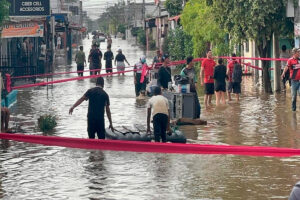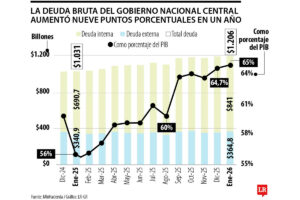I watched and participated in the conference for its entire duration and was thrilled by it. My primary focus was on the ocean because that’s the part I’m passionate about, but I was excited and concerned by much more. In brief, here’s what I saw and thought about the conference. I will follow with more complete thoughts about the climate issue which I believe is one of the five big forces changing the world order.
My Big Picture Observations about COP28
- Most people are paying too much attention to the historic deal to transition away from fossil fuel production. This was announced at the end of the conference and most commentary on the conference is overlooking all the other great stuff that happened, most importantly the huge number of deals, partnerships, and other kinds of collaboration among the participants. There were an estimated 70,000 people from across the world’s nations who shared deep interests and had deep expertise in all the imaginable dimensions of the natural health of the planet collaborating on things to do together in pursuit of it. COP28 was like a giant smorgasbord of people passionate about addressing the climate issue that was very inspiring and productive. I believe that the real power to change the world comes from practical, entrepreneurial people working in an entrepreneurial way to come up with ideas that justify getting funding to try to prove them out. If these work, they can be built out because people will want them enough to pay for them. Big change doesn’t come from the heads of already over-burdened states pledging to do uneconomic deals. (Of course, some of these uneconomic things are important and can make a difference, but it will ultimately be the entrepreneurial, economically-viable ideas that make the biggest difference.) So, while the conversations between the heads of states grabbed the headlines, in my view, the more important part of the conference were the tens of thousands of people doing productive deals that never got attention. In fact, I came across many opportunities to invest in ways that help the ocean. Frankly, this was the best gathering of people from so many different countries working on solving a big common problem that I’ve ever been a part of. Those who organized it, especially Dr. Sultan Al Jaber, should be congratulated.
- Most people are mistakenly judging success solely by the pledges to cut carbon emissions and the amount of money pledged to help do that relative to achieving the 1.5 degree goal. While of course limiting warming is important, looking at that alone is not a practical way to assess the pros against the cons of possible actions. For example, suppose world leaders agreed to eliminate all carbon fuels production tomorrow, which would cause the greatest oil shock ever and significant economic suffering and therefore human suffering. Should we cheer? Wouldn’t you have liked to have seen a report on the costs of this relative to its benefits? And wouldn’t you love to see a great cost-benefit analysis of the alternative paths for addressing and adapting to climate challenge? The best way to assess success and produce the best outcomes is to properly weigh the pros against the cons of one’s actions. In my opinion, this is not being done enough and that is the greatest problem in dealing with the climate crisis.
- Anyway you cut it, you can expect huge climate-related costs ahead, so success must be sought and judged by how well we deal with these terrible costs, not by whether we achieve the impossible outcome of eliminating them. Whether the world devotes its resources to mitigating climate change, building adaptations to make it more tolerable, or paying the price of the damages that will come from it, it is going to be very costly. My hope is that it will be dealt with practically, but I am still not seeing too many policy makers doing this well for reasons I will explain in my next piece on the climate challenge.
These are my main observations from attending the conference.







